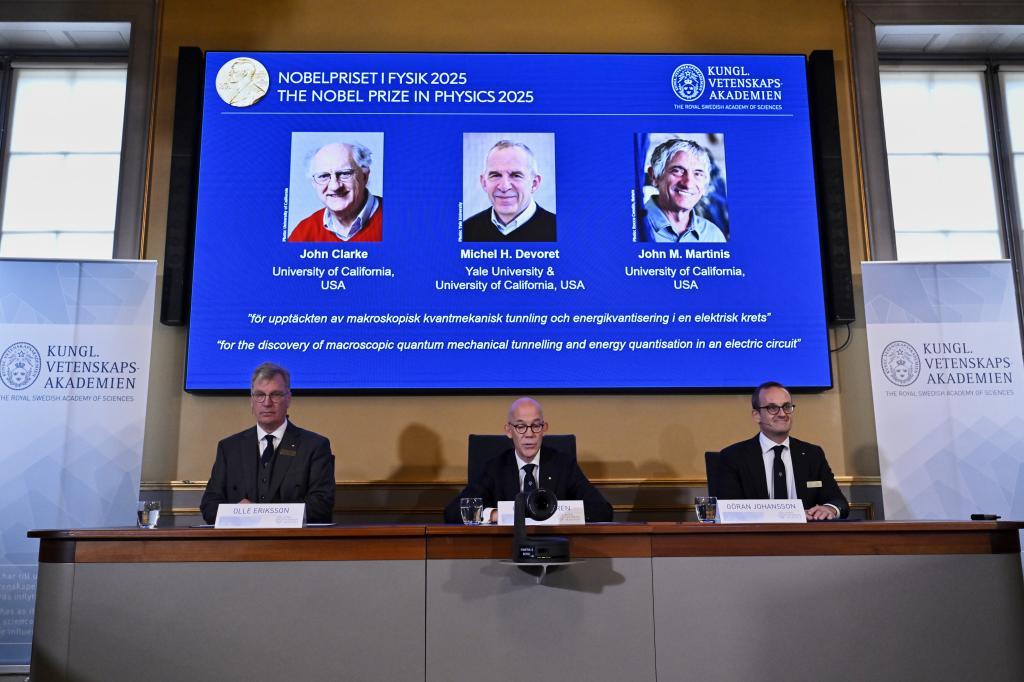The 2025 Nobel Prize in Physics has been awarded to John Clarke, Michel Devoret, and John Martinis for their findings in quantum mechanics. Specifically, they have been recognized "for the discovery of the macroscopic quantum tunneling effect and the quantification of energy in an electrical circuit," as announced this morning from Stockholm by Hans Ellegren, Secretary-General of the Royal Swedish Academy of Sciences.
Nobel Prize in Medicine for Mary E. Brunkow, Fred Ramsdell, and Shimon Sakaguchi
Why Spain struggles with Nobel Prizes: "Lack of a scientific culture that rewards talent and risk, and that supports young people"
On Monday, the Nobel Prize in Medicine was announced, shared this year by Mary E. Brunkow, Fred Ramsdell, and Shimon Sakaguchi for their discoveries related to the security guards of the immune system, regulatory T cells, which prevent immune cells from attacking our own body. These findings have laid the groundwork for new fields of research and driven the development of treatments for cancer and autoimmune diseases, among others.
Last year, the Nobel Prize in Physics was shared by John Hopfield and Geoffrey E. Hinton for their discoveries on artificial neural networks that enable machine learning (deep learning), a technology inspired by the brain's structure that underlies what we call artificial intelligence (AI).
Tomorrow, Wednesday starting at 11:45 a.m., the Nobel Prize in Chemistry will be announced, on Thursday starting at 12 p.m. the Literature Prize, on Friday at 11 a.m. the Peace Prize, and on Monday, October 13 at 11:45 a.m. the Prize in Economic Sciences.
